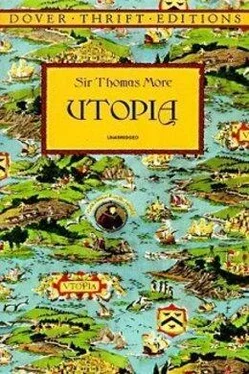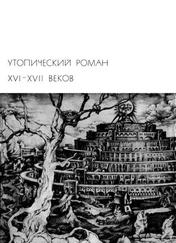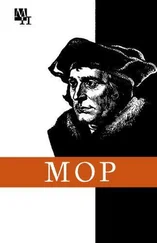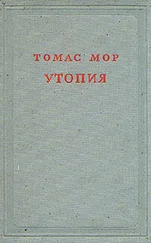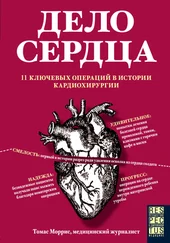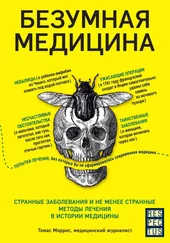I was colleague and companion to that incomparable man Cuthbert Tonstal, whom the King, with such universal applause, lately made Master of the Rolls; but of whom I will say nothing; not because I fear that the testimony of a friend will be suspected, but rather because his learning and virtues are too great for me to do them justice, and so well known, that they need not my commendations, unless I would, according to the proverb, "Show the sun with a lantern." Those that were appointed by the Prince to treat with us, met us at Bruges, according to agreement; they were all worthy men. The Margrave of Bruges was their head, and the chief man among them; but he that was esteemed the wisest, and that spoke for the rest, was George Temse, the Provost of Casselsee: both art and nature had concurred to make him eloquent: he was very learned in the law; and, as he had a great capacity, so, by a long practice in affairs, he was very dexterous at unravelling them. After we had several times met, without coming to an agreement, they went to Brussels for some days, to know the Prince's pleasure; and, since our business would admit it, I went to Antwerp. While I was there, among many that visited me, there was one that was more acceptable to me than any other, Peter Giles, born at Antwerp, who is a man of great honour, and of a good rank in his town, though less than he deserves; for I do not know if there be anywhere to be found a more learned and a better bred young man; for as he is both a very worthy and a very knowing person, so he is so civil to all men, so particularly kind to his friends, and so full of candour and affection, that there is not, perhaps, above one or two anywhere to be found, that is in all respects so perfect a friend: he is extraordinarily modest, there is no artifice in him, and yet no man has more of a prudent simplicity. His conversation was so pleasant and so innocently cheerful, that his company in a great measure lessened any longings to go back to my country, and to my wife and children, which an absence of four months had quickened very much. One day, as I was returning home from mass at St. Mary's, which is the chief church, and the most frequented of any in Antwerp, I saw him, by accident, talking with a stranger, who seemed past the flower of his age; his face was tanned, he had a long beard, and his cloak was hanging carelessly about him, so that, by his looks and habit, I concluded he was a seaman. As soon as Peter saw me, he came and saluted me, and as I was returning his civility, he took me aside, and pointing to him with whom he had been discoursing, he said, "Do you see that man? I was just thinking to bring him to you." I answered, "He should have been very welcome on your account." "And on his own too," replied he, "if you knew the man, for there is none alive that can give so copious an account of unknown nations and countries as he can do, which I know you very much desire." "Then," said I, "I did not guess amiss, for at first sight I took him for a seaman." "But you are much mistaken," said he, "for he has not sailed as a seaman, but as a traveller, or rather a philosopher. This Raphael, who from his family carries the name of Hythloday, is not ignorant of the Latin tongue, but is eminently learned in the Greek, having applied himself more particularly to that than to the former, because he had given himself much to philosophy, in which he knew that the Romans have left us nothing that is valuable, except what is to be found in Seneca and Cicero. He is a Portuguese by birth, and was so desirous of seeing the world, that he divided his estate among his brothers, ran the same hazard as Americus Vesputius, and bore a share in three of his four voyages that are now published; only he did not return with him in his last, but obtained leave of him, almost by force, that he might be one of those twenty–four who were left at the farthest place at which they touched in their last voyage to New Castile. The leaving him thus did not a little gratify one that was more fond of travelling than of returning home to be buried in his own country; for he used often to say, that the way to heaven was the same from all places, and he that had no grave had the heavens still over him. Yet this disposition of mind had cost him dear, if God had not been very gracious to him; for after he, with five Castalians, had travelled over many countries, at last, by strange good fortune, he got to Ceylon, and from thence to Calicut, where he, very happily, found some Portuguese ships; and, beyond all men's expectations, returned to his native country." When Peter had said this to me, I thanked him for his kindness in intending to give me the acquaintance of a man whose conversation he knew would be so acceptable; and upon that Raphael and I embraced each other. After those civilities were past which are usual with strangers upon their first meeting, we all went to my house, and entering into the garden, sat down on a green bank and entertained one another in discourse. He told us that when Vesputius had sailed away, he, and his companions that stayed behind in New Castile, by degrees insinuated themselves into the affections of the people of the country, meeting often with them and treating them gently; and at last they not only lived among them without danger, but conversed familiarly with them, and got so far into the heart of a prince, whose name and country I have forgot, that he both furnished them plentifully with all things necessary, and also with the conveniences of travelling, both boats when they went by water, and waggons when they trained over land: he sent with them a very faithful guide, who was to introduce and recommend them to such other princes as they had a mind to see: and after many days' journey, they came to towns, and cities, and to commonwealths, that were both happily governed and well peopled. Under the equator, and as far on both sides of it as the sun moves, there lay vast deserts that were parched with the perpetual heat of the sun; the soil was withered, all things looked dismally, and all places were either quite uninhabited, or abounded with wild beasts and serpents, and some few men, that were neither less wild nor less cruel than the beasts themselves. But, as they went farther, a new scene opened, all things grew milder, the air less burning, the soil more verdant, and even the beasts were less wild: and, at last, there were nations, towns, and cities, that had not only mutual commerce among themselves and with their neighbours, but traded, both by sea and land, to very remote countries. There they found the conveniencies of seeing many countries on all hands, for no ship went any voyage into which he and his companions were not very welcome. The first vessels that they saw were flat–bottomed, their sails were made of reeds and wicker, woven close together, only some were of leather; but, afterwards, they found ships made with round keels and canvas sails, and in all respects like our ships, and the seamen understood both astronomy and navigation. He got wonderfully into their favour by showing them the use of the needle, of which till then they were utterly ignorant. They sailed before with great caution, and only in summer time; but now they count all seasons alike, trusting wholly to the loadstone, in which they are, perhaps, more secure than safe; so that there is reason to fear that this discovery, which was thought would prove so much to their advantage, may, by their imprudence, become an occasion of much mischief to them. But it were too long to dwell on all that he told us he had observed in every place, it would be too great a digression from our present purpose: whatever is necessary to be told concerning those wise and prudent institutions which he observed among civilised nations, may perhaps be related by us on a more proper occasion. We asked him many questions concerning all these things, to which he answered very willingly; we made no inquiries after monsters, than which nothing is more common; for everywhere one may hear of ravenous dogs and wolves, and cruel men–eaters, but it is not so easy to find states that are well and wisely governed.
Читать дальше
Конец ознакомительного отрывка
Купить книгу
